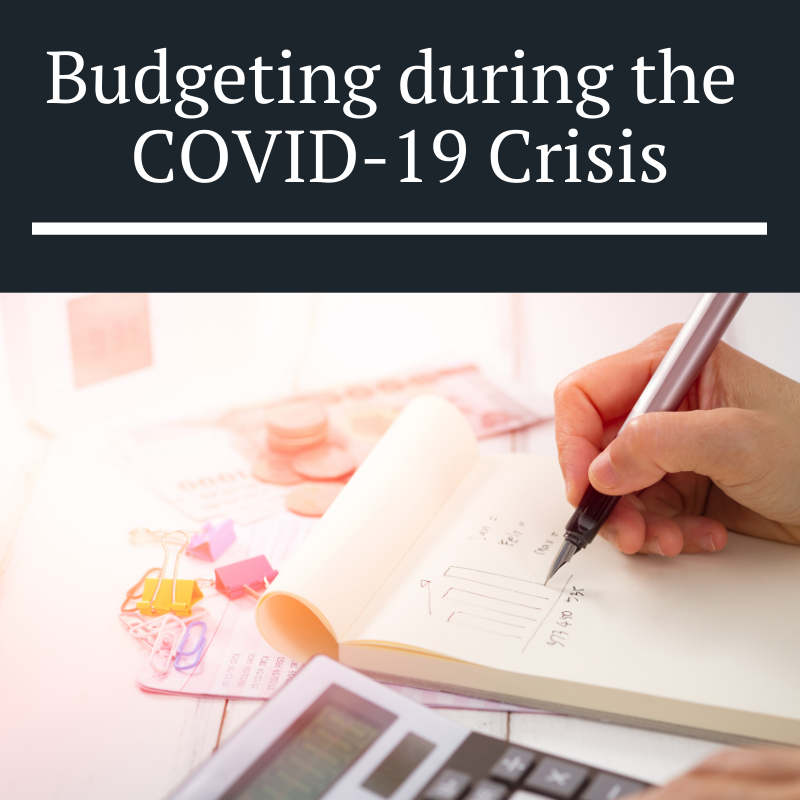By: Peter L. Plevritis, Associate Advisor
The coronavirus has led to a near shutdown of local businesses and the U.S. economy. During this time of financial uncertainty, it may be prudent to build a budget that works for you and your family. We understand this will not be easy in the midst of a pandemic, but taking some important steps can help lessen the impact on your finances.
- Assess your current situation. Determine what your income is and what your expenses are. This exercise will help you understand where your funds are going as they come in to your household. To do this, take a look at your essential bills such as:
- mortgage/rent,
- loan payments,
- costs of groceries,
- utilities,
- cell phone
- Internet, etc.
Assess how much these essential bills are to understand your outflow of funds compared to your current income. Note that if you lose income because of the crisis, the government has asked lenders to allow partial or no payments on your home mortgage for certain periods of time. If you are facing hardship, contact your lender to hear your options on pausing your payments.
- Understand benefits available to you. New York State has made unemployment benefits available immediately. The federal government is reviewing a stimulus package that may be able to help you with a cash infusion. If the government provides cash payments, this can factor into your income and alleviate any hardships in the short term.
Stimulus packages are being reviewed at the time that we write this article. The current proposed package calls for $1,200 to each adult that has an income of up to $75,000 and lesser amounts if your income is above $75,000 but below $99,000. Couples would be eligible if their household income does not exceed $198,000. Families with children would also receive $500 for each child in the household. These amounts may change by the time the stimulus package is finalized.
- Build up your emergency fund! If you have become a remote worker due to “social distancing” practices, use what you would normally spend on commuting costs to set aside for an emergency savings account. If you have followed step 1, you may have looked at your expenses and noticed some discretionary things that can be pared down or cut out altogether. This may be necessary, especially if you find that your expenses exceed your income. Take action now to cover any shortfall.
As we work through this crisis together, the way we look at our daily lives will likely change. Take this time to review your financial life and take the steps to be prepared for your future.


